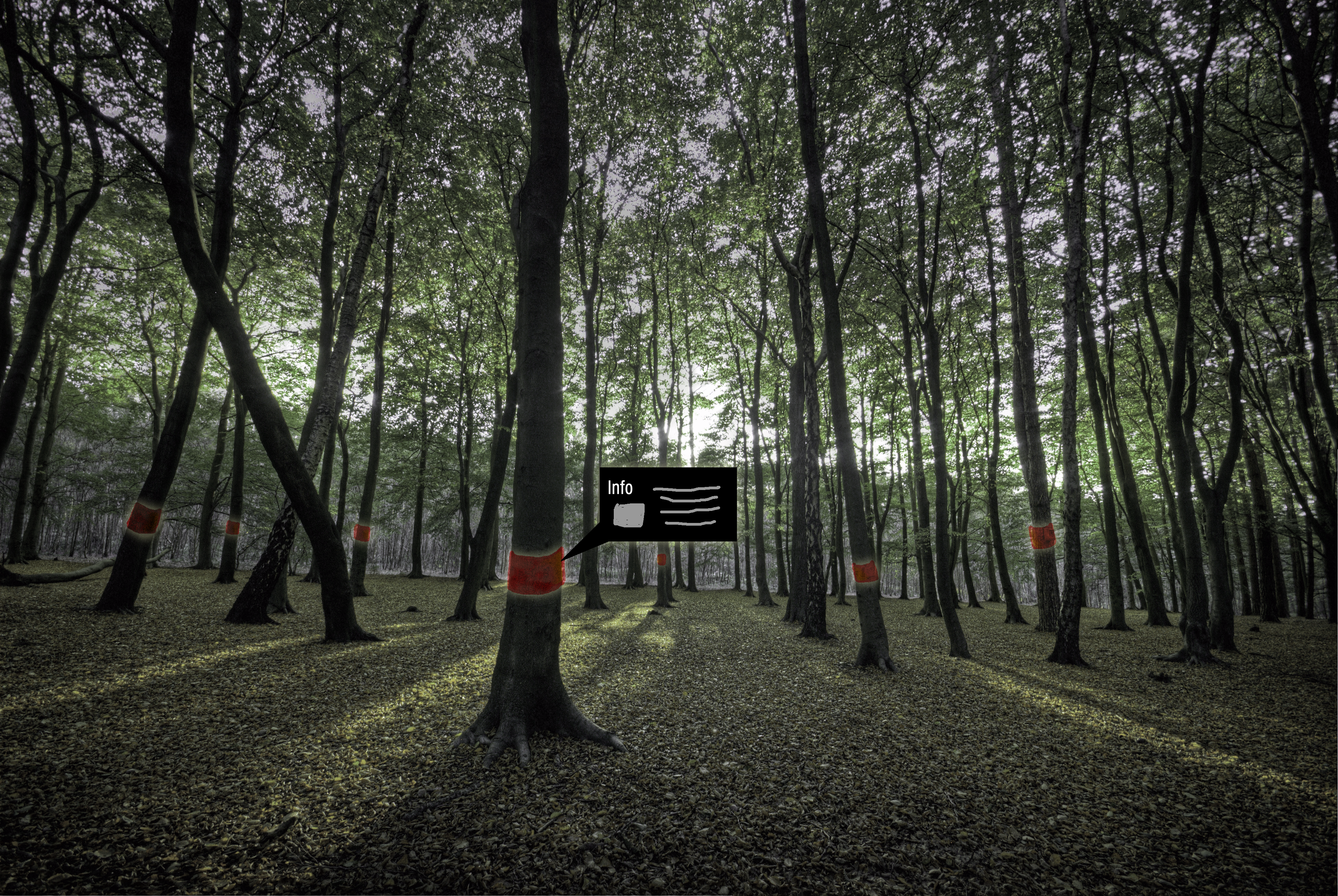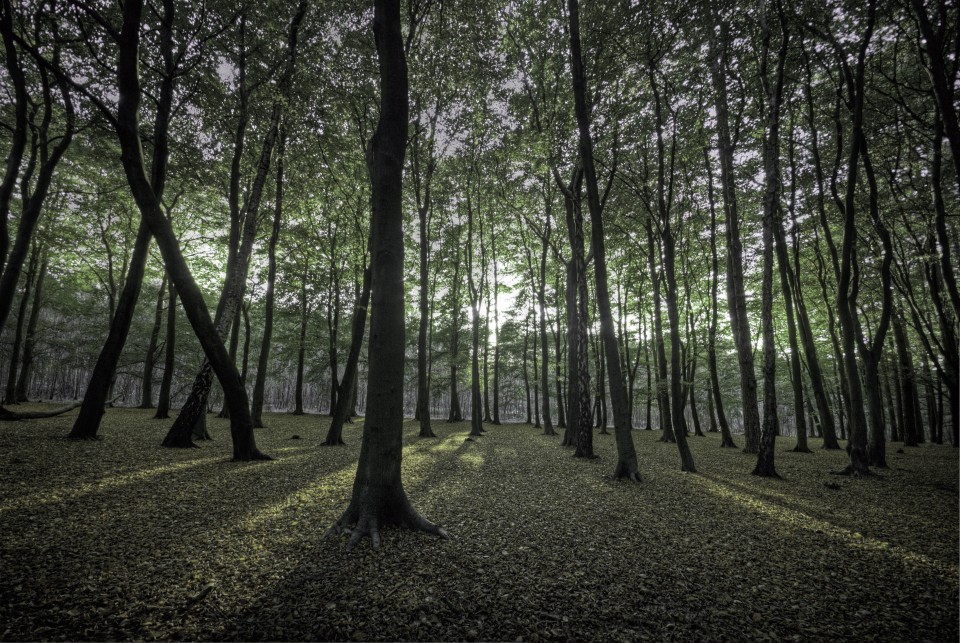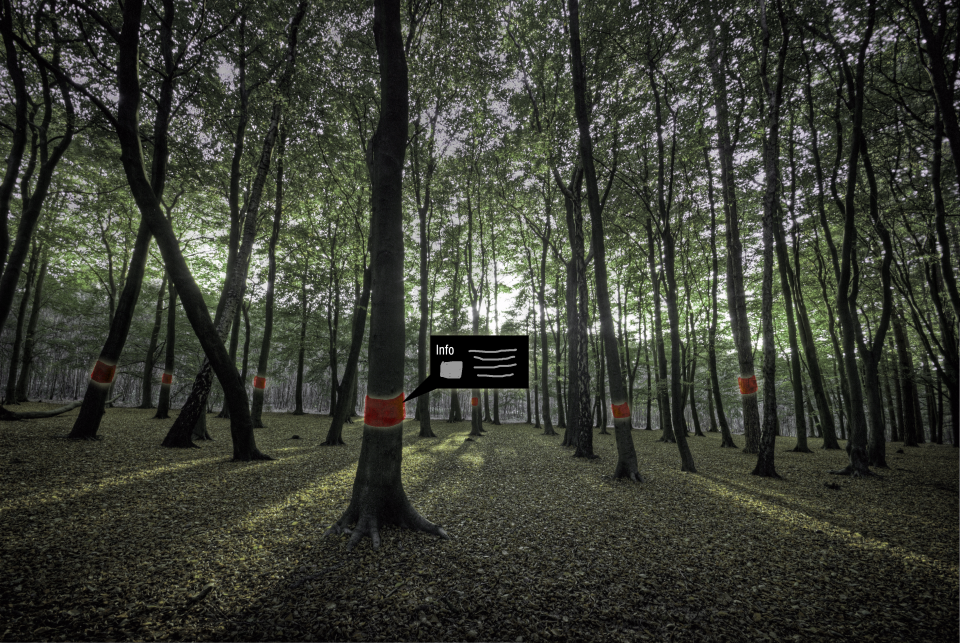For Knowledge is Natural, we will be in the beautiful woods of the south of Italy to explore the possibility to re-appropriate sensibilities and knowledge about natural environments, using DIY, sustainable energy sources, Augmented Reality, Natural Interaction, Ubiquitous Technologies and the re-discovery of human relationships and emergent, peer-to-peer creativity.
Knowledge is Natural, August 19-25 2012, in Societing’s 3rd Summer School titled “Transmutation, the Next Mediterranean Way”.
The Summer School is created by the Mediterranean Societing Academy, Centro Studi Etnografia Digitale, Università degli Studi di Milano, Università degli Studi di Salerno, AOS – Art is Open Source.
Most people living in urban contexts have lost connection to knowledge about natural environment.
For them, the beautiful wood in the image above would be, well, a beautiful wood, not a plentiful source of food, energy, medicines and wellness.
Or, more precisely, it could be that in their imagination natural environments could be perceived as being all of these positive things, but most of the time they would have no idea on how to exploit them or, even more, how to exploit them wisely, respectfully and sustainably.
People living in urban contexts have lost most of their knowledge about natural environments: for most of them nature is something defined as an administrative boundary (e.g.: the flowers and grass in the middle of a roundabout; flowers in a vase; a public park) or shrink-wrapped in a refrigerator (e.g.: the vegetables in supermarkets).
Just as other elements of the natural environment, plants have moved to the periphery of our field of view. Their life is almost purely aesthetic, with very few information about their function, benefits and roles in the ecosystem: a wealth of knowledge which remains hidden to most urban dwellers.
There’s more.
The problems which menace our planetary communities, the practices and habits which embody our difficulties in achieving wellness and a balanced life with nature and cultures different from our own, are often connected to the fact that rhythms, procedures, strategies and approaches of our daily lives are not the product of awareness and consciousness.
They are the result of a synthetic building process, created as a function of consumism and a general standard for “comfort” which is more oriented to having us purchase products and services than it is to allowing us to take a step back to enlarge our field of vision onto societies and living environments, allowing us to embrace approaches which are more holistic and relaxed in the ways in which we relate to the planet and fellow human beings.
Luckily human beings start becoming aware about the disequilibrium between what we perceive about the world and what the planet really has to offer, if only we manage to connect to different scales of values, rhythms and modalities.
Awareness and consciousness are obviously about information and knowledge, and on the perception of the possibility to build, share and disseminate them, transforming them into usable knowledge.
Ubiquitous networks and technologies will play an important role in our near future.
Traditions, visions and emergent approaches are an enormous richness for our planet.
It is now possible to imagine social and technological systems which will allow people to embed digital information into the world, using peer-to-peer dynamics and making them usable and accessible to an enormous variety of human beings.
Strolling through a wood is, for an urban dweller, an experience which is substantially aesthetic.
Using ubiquitous technologies we can imagine populating these spaces with information which could show us, for example, how to produce food, energy, spaces for relation and communication, modes and opportunities to heal and obtain wellness.
We can imagine adding our creativity to the natural environment and the knowledge which we produce, making both accessible to other people.
An unknown type of bush magically becomes a medicine. Trees become a source for food. Knowledge about the life-cycle of a certain environment transforms it into a highly sustainable source of energy.
Answers? No! Questions!
With Knowledge is Natural we start a discovery process, trying to collaboratively imagine scenarios which could represent possible answers to a series of important questions.
How is it possible to create ubiquitous networks in natural environments, taking into account the lack of energy, connectivity and infrastructures, and measuring their sustainability, accessibility (divide, inclusion) and usability (alphabetization)?
Which forms could these networks assume? Made through computers and mobile devices or in alternative ways which are able to create bridges between analog and virtual worlds?
Which practices can facilitate and enable these approaches? Which needs are we able to satisfy? Which types of people can benefit from access to ubiquitous knowledge produced by multiple sources and peers in natural environment?
Which types of information could/should we make ubiquitously accessible through these practices and technologies? From the past (traditions), present (real-time, through the expressions of people and organizations) and (near) future (vision)?
How can this information be used in urban contexts? Gilles Clément’s Third Landscape perfectly describes nature in urban spaces: nomadic, interstitial, temporary, able to grow between the cracks of walls and along train tracks. Currently, Third Landscape is the main responsible for biodiversity in our cities, and represents an incredible, unused wealth for our well-being. And, even more, it inspires critical practices such as Guerrilla Gardening. Clément declared the need to train our gaze to recognize the Third Landscape and the opportunities it offers us.
How can we relate to nature in cities in different ways? How can we transfer innovative practices from rural to urban contexts?
The Workshop
The workshop will last 3 days in which we will collaborate in different ways to design and realize scenarios in which each participant will be able to elaborate a significative perspective on these questions.
We will work within nature. Our lab will be an innovative camp in which we will give life to novel forms of collaborative study and relation, throughout the day. The woods will be our classroom.
We will build a DIY sustainable energy source.
We will learn how to use it to power up laptops, smartphones and custom electronics.
We will create various forms of in-wood peer-to-peer networks in both technological and non-technological ways, allowing us to exchange information, publish it in natural environments and propagate it onto the Internet.
We will disseminate digital information in nature, harvest it, share it on the web and on social networks.
We will augment reality, in analog and digital ways, creating accessible, usable, inclusive and interconnective practices.
We will observe human and non-human activity in nature, using networks and custom electronics.
Who is the workshop for?
The workshop has no pre-requisites: anyone can join in.
If you never touched a smartphone, never written a line of programming code, never opened up a browser: you are welcome! And you are the right people for the experience!
From start to finish you will learn how to create usable knowledge, and how to share and disseminate it in natural environments.
If you are a hacker, designer, architect, artist, inventor, maker, camper, traveller: welcome to you too! We will work together to create the most sustainable, useful and inclusive, peer-to-peer knowledge ecosystem.
What will we use?
Lots of different things, like:
- Computers, smartphones, tablets
- Solar cells
- Knives and other cutting tools
- Rubber, plastic, wood, stones and anything we will find laying around
- Some electronics and sensors
- water
- paper
- wind and sun
- Networks which you already know about, and some which you don’t
How to join
write to us at info@artisopensource.net
![[ AOS ] Art is Open Source](https://www.artisopensource.net/network/artisopensource/wp-content/uploads/2020/03/AOSLogo-01.png)


